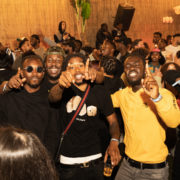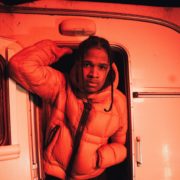Where are the Black owned music festivals?

Black music is championed at festivals but it is rare that those same festivals are led or owned by Black people.
Yam Carnival took place over the August Bank Holiday weekend and it didn’t hit the mark in the way people, especially Black people wanted it to. There was a real excitement for the festival and it was filling a much needed void this year. With no Notting Hill Carnival and Yam Carnival taking place the weekend it would usually have taken place, hopes were high for an authentic Black run event celebrating Black music. Yam tried, that can’t be denied, but reports from a large number of attendees were that the effort whilst noted didn’t make up for the poor experience they had.
From long queues, 2 hour waits for food, artists dropping out, poor sound on the main stage, delayed performances, performances cut short, customers having to hotspot at bars to pay for refreshments and Kehlani saying “they owe you a show” it was a rough debut for Yam Carnival.
It seems like it was problems across all areas both in and out of the organiser’s control. As people have found out who organised the festival the backlash has become even stronger as it was organised by the founder of Afro Nation, SMADE. SMADE has had his fair share of bad press as a result of his handling of Afro Nation‘s cancellation and refunding process. Whilst the criticisms are fair and warrant responses from the organisers it also highlights an issue amongst the festival space – there aren’t that many Black festivals in the UK, or at least ones celebrating Black music whilst also being run or founded by Black people.
Whilst Yam Carnival is under much needed scrutiny, the bigger issue is that we don’t really have many alternatives if we want to have an authentically curated Black festival experience in the UK. This is not to say that there aren’t any other Black run or founded festivals as we have the likes of AFROPUNK, Black Girl Fest, Strawberries & Creem, Cloud X and you could argue for Matt’s BBQ to be in that list as they blur the line between large scale outdoor event and festival.
The difference between those festivals and Yam Carnival is the amount of focus given to Black music.
Black Girl Fest encompasses so much more than just a music festival that although Black music is 100% a part of its DNA it’s not really the main focus of the event. AFROPUNK and Matt’s BBQ centre Black music but similarly have other aspects that are arguably more dominant – one’s a BBQ and one’s a global brand about creating inclusive spaces for Black people. Strawberries & Creem whilst a partially Black-owned and founded music festival isn’t exclusively about celebrating Black music. Cloud X is also similar in that it is partially Black owned and whilst it celebrates Black music a lot better than the other festivals mentioned its aim is to showcase alternative music so the Rap and Afrobeats/Afro Swing sounds that have become mainstream weren’t as strongly represented.
With that being the case when it comes to wanting to see the biggest Black acts in a festival setting in the UK we’re only left with the festivals like Wireless, Reading & Leeds and those more established and corporately backed festivals. Whilst not knocking them, it does feel slightly strange that such big spectacles celebrating Black culture and music aren’t being organised by people from that culture. These festivals serve their purpose and provide a place for global superstars to perform in the UK but they often fall a little flat because the culture feels like it’s just being used.
The Ends Festival isn’t Black owned, but granted the team behind that did do quite a good job in 2019 to offer a well rounded Black cultural experience in a way that felt genuine and not exploitative.
The most recent Wireless that took place in Crystal Palace is case and point of this. The lineup was problematic from the start due to its lack of female representation but even that aside the crowd that attended didn’t seem to appreciate the acts they had paid to see. Across several sets, acts were performing to crowds who seemed largely unfamiliar with the artists’ material or more caught up in capturing content on their phones than enjoying the experiences. This is partially due to the demographic that the festival has begun to attract which is seemingly a younger audience than it once did, but it still speaks volumes.
One of the most harrowing examples from this year was Giggs, of all people, having to wheel up his most iconic track, commonly spoken of as the national anthem, to ask the crowd to engage more. Giggs, The Landlord, Hollowman – the man who has arguably been the face of the UK Rap scene for well over a decade both regionally and internationally couldn’t get a satisfactory response in his native South London. A situation like this begs for a Yam Carnival type festival where these acts are marketed to the audiences that are really fans and want to enjoy those authentically curated live experiences to the fullest.
Afro Nation in their inaugural year in Portugal captured that perfectly and we need more of it. Cloud X equally did an incredible job with their recent offering but we need more of it in the UK. It is by no means an easy feat, even putting on a live show with one artist poses challenges when working with established live music venues even more so with Black artists. A festival is a whole different ball game, there can be no shortcuts and there isn’t really a way to put one on fast. There are several logistical and legislative steps to securing a festival site let alone all of the production and negotiating involved in delivering the festival. It is a difficult task to fulfil but there are definitely collectives and individuals capable of doing it and doing it well.
With all of the hurdles that go into putting on a festival it’s no surprise that there aren’t more Black music festivals, but Yam Carnival and the recent Wireless prove that they are needed. Imagine a No Signal organised festival – this wouldn’t be completely outrageous either with Jojo and David Sonubi both being established in the events space and having good relationships within the musical sphere. It would be exactly the vibe people wanted and need.
We may not have many festivals for us by us, but more and more are popping up and this can only be a good thing. So whilst it is fair to criticise those that have underdelivered or failed to meet expectations we also need to have a margin of leniency to allow room for growth from these organisers and brands. Without it, we’re going to be stuck to relying on Wireless for an experience that they ultimately aren’t all that interested in creating for Black people. We do also need more people to come forward and put themselves in the position to put on festivals but I’m sure that will come with time, especially once they learn the potential financial returns from doing so successfully.
So where are the Black music festivals? A few are out there doing their thing, or trying to, but there definitely needs to be more and there will be more for sure as time goes on.




![ZINO VINCI’S ‘FILTHY & DISGUSTING’EP BRINGS YOU TO THE CORE OF THE ARTIST [@ZinoVinci]](https://guap.co/wp-content/uploads/2023/10/Zino-4.jpg)




